How to start an insulation business
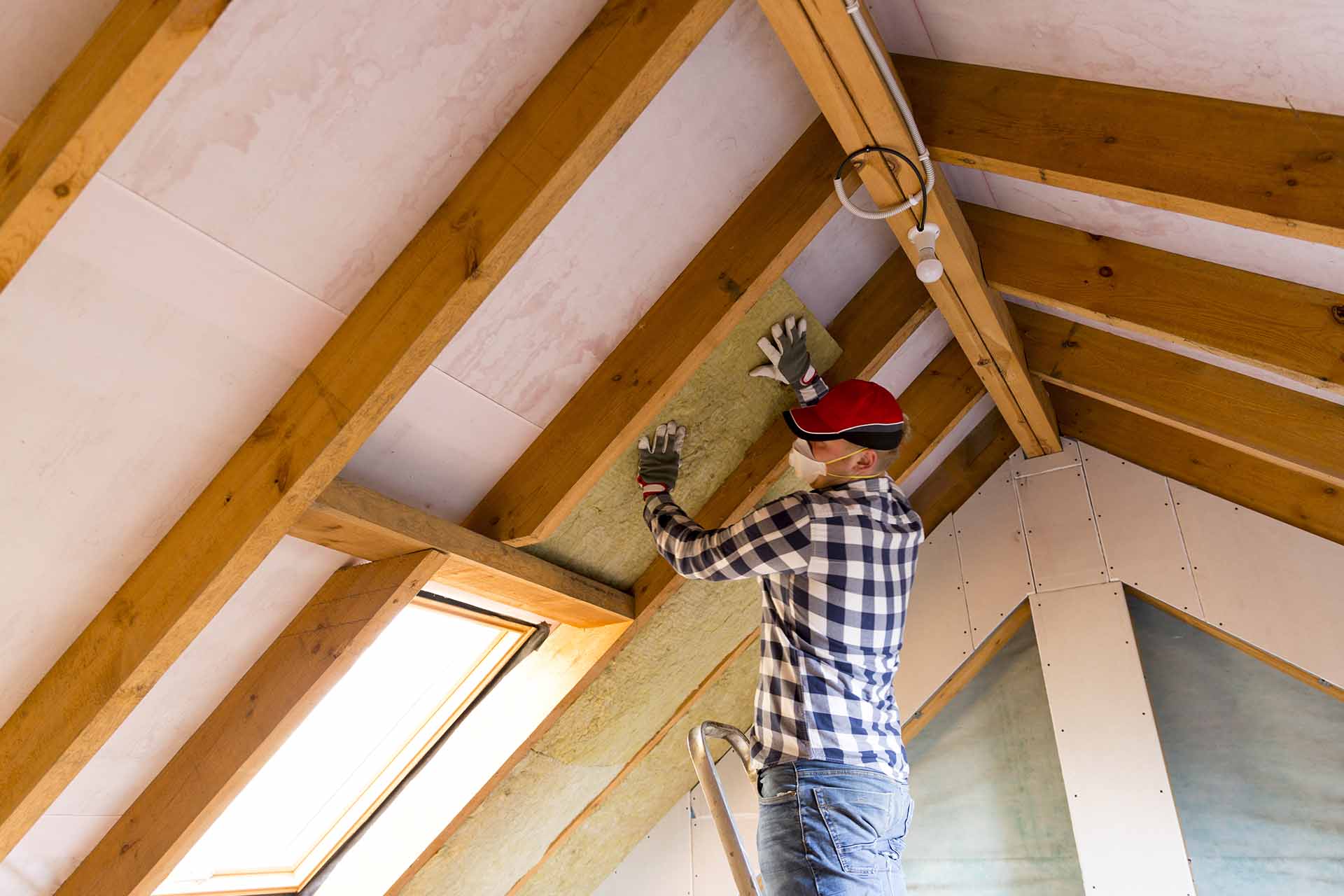
In this article, we'll cover:
- Why start an insulation business?
- Creating an insulation business plan
- What qualifications does an insulation installer need?
- What business skills does an insulator need?
- How to set up your insulation business
- How to grow your insulation business
- How to get more insulation work
- Save money and time marketing your business with Checkatrade
- Insulation business FAQs
Why start an insulation business?
No matter if you’re a homeowner or running a business, we’re all looking to save on energy costs. And with the government’s ECO4 scheme running until 2026, more and more people are looking at installing insulation.
This also means that there’s now a golden opportunity for those in the insulation trade to find more clients. This all means that there’s never been a better time than now to start your own insulation company.
Demand for insulation professionals has only been growing in recent years and will likely continue to grow in the future.
So, whether you’re an experienced insulator or completely new to the trade, our guide is here to help. Read on to learn how to get your insulation business started, and how to grow it once you’ve started.
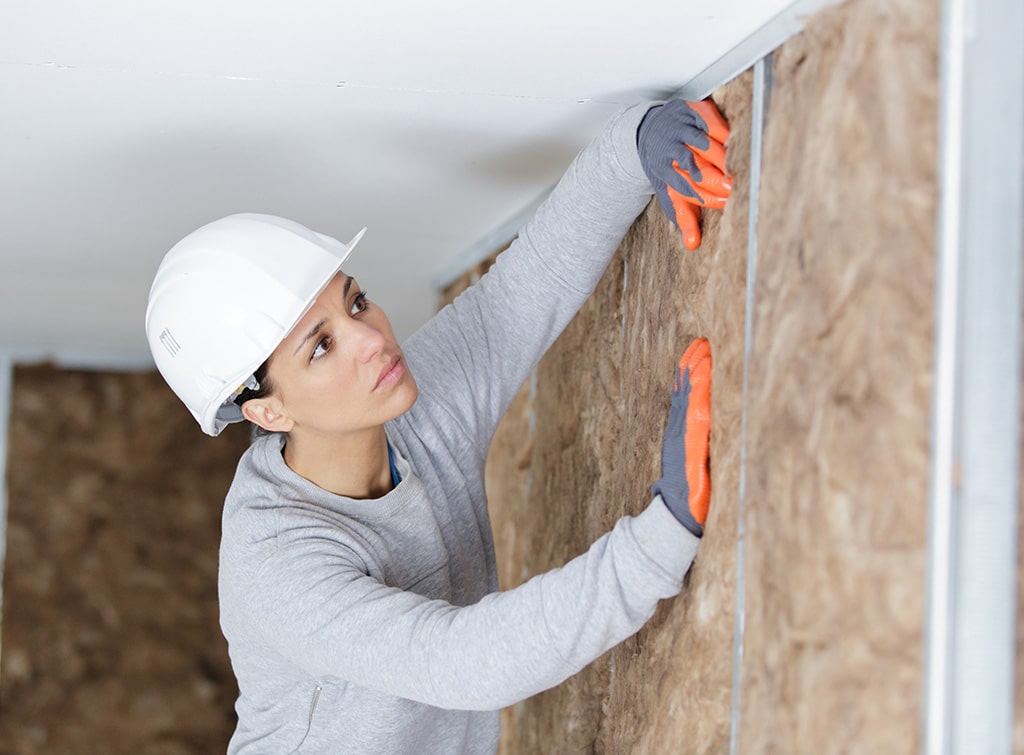
Creating an insulation business plan
While it’s tempting to jump straight in and set your business up, there’s one thing you need to do first. And that’s to set up a business plan for your insulation business so you can move in the right direction.
Creating a business plan is a crucial step for any startup and not one you should avoid. It helps layout your company goals, giving you a clear vision, and guiding you on how best to meet them.
So, when thinking about just what to include in your business plan, you should look at all of the following:
- Business goals – the goals of your new business and how you aim to complete them
- Funding costs – the finances you plan to use to fund your new business
- Finance managing – the methods you’ll use to manage your business finances
- Services offered – the services you plan to offer customers
- Target audience – the sorts of people you want to target with your insulation services
- Prices – the amount you plan to charge customers for your work
- Area of operation – the area in which you plan to operate
- Marketing – the methods of marketing you plan to use
- Work hours – the hours and days you plan to work each week
We recommend taking plenty of time to work out the details of these areas. Doing so will help to give you much clearer goals.
Naturally, if you want help doing this, then you can read our blog on writing a business plan. And don’t forget to download our free business template plan below.
What qualifications does an insulation installer need?
If you’re new to the insulation trade, then it’s important that you seek out the necessary qualifications required. While not legally required to operate, customers will trust you more if you can prove you know what you’re doing.
So, if you’re not already qualified, check out the courses offered by our partner over at Northwest Skills Academy. Or, alternatively, consider taking any of the following insulation courses:
- A Level 1 Award in Construction Crafts
- A Level 2 Diploma in Building Insulation Treatments
- A Level 2 Certificate in Construction Operations
- A Level 2 Certificate in Construction and Building Crafts
We’d also suggest joining an apprenticeship or placement programme as well so you can get hands-on experience. For more information, why not read our blog on how to become an insulator?
Getting CSCS certified
As an insulation specialist, you’ll likely be working on various building sites. This means you’ll need to get your CSCS card as soon as possible.
Without it, you won’t be able to work on any construction sites and could miss out on larger commercial projects.
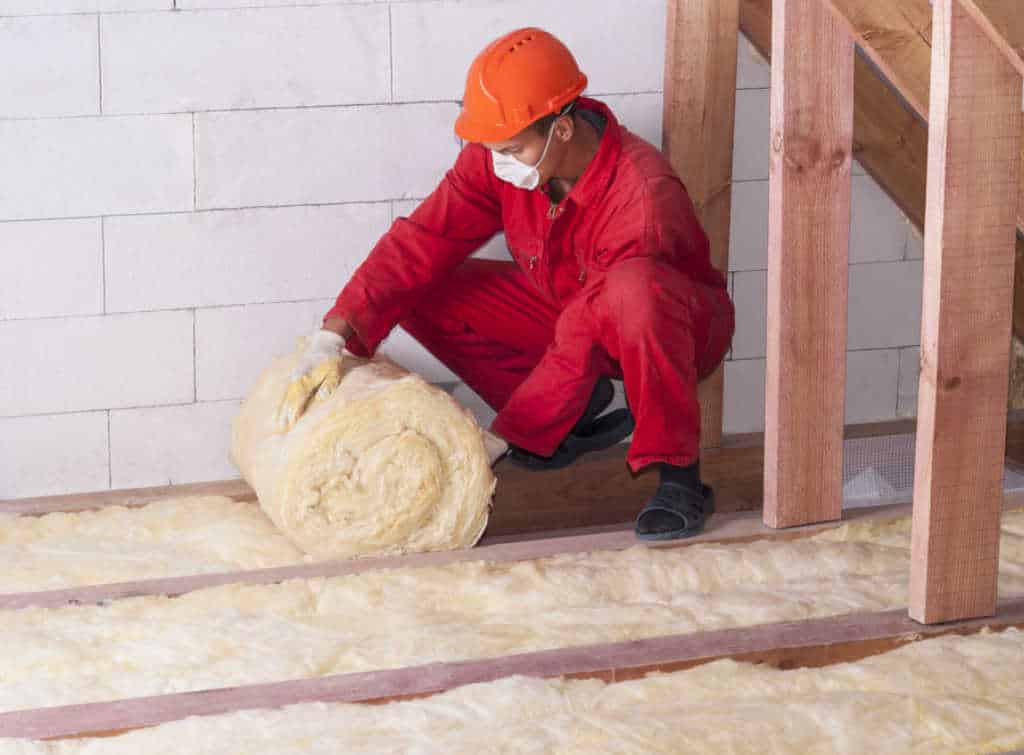
What business skills does an insulator need?
Much like any business, there are plenty of other skills you’ll need to have besides insulation knowledge. If you want your new business venture to be successful, then you’ll need to train in all the following areas:
- Attention to detail – customers don’t want you to cut corners, so you need to be sure you can do your job to the highest specifications
- People management and interpersonal skills – you’ll be working with numerous other professionals in your career, meaning you’ll need to cultivate good people skills
- Problem-solving – insulation planning and installation comes with numerous problems you’ll need to overcome, as does running a business
- Health and safety awareness – insulation work and managing employees comes with risks, all of which you’ll need to be aware of to avoid accidents
- Salesmanship – knowing how to approach and market to customers will be vital when finding new business
- High-quality customer service – you always want to maintain a friendly and professional front with customers if you want to boost your reputation
Naturally, these are just some of the core skills to bear in mind. If you want a larger list of business skills to consider, why not read our article on becoming your own boss?
Want to make sure your new business gets off to the right start?
With a listing on the #1 trade directory, you'll get all the leads you need
Join Checkatrade nowHow to set up your insulation business
Now that we’ve covered the first steps for starting an insulation business, let’s now look at the setup. Here, we’ve listed the four most important steps you’ll need to start an insulation business and get your company going:
1. Register your insulation business
To begin with, when starting any business, you need to name it and register it with HMRC. Registering your business is especially important as it is a legal requirement. You can’t start work without doing this.
You’ll also need to decide if you want to operate as a sole trader or a limited company. Be sure to do your research on this as both options have their own advantages and disadvantages.
As for your business name, don’t rush this either. Your name will be crucial to your branding, so you want to get it right. Read our article on coming up with a business name for more advice on how to do this.
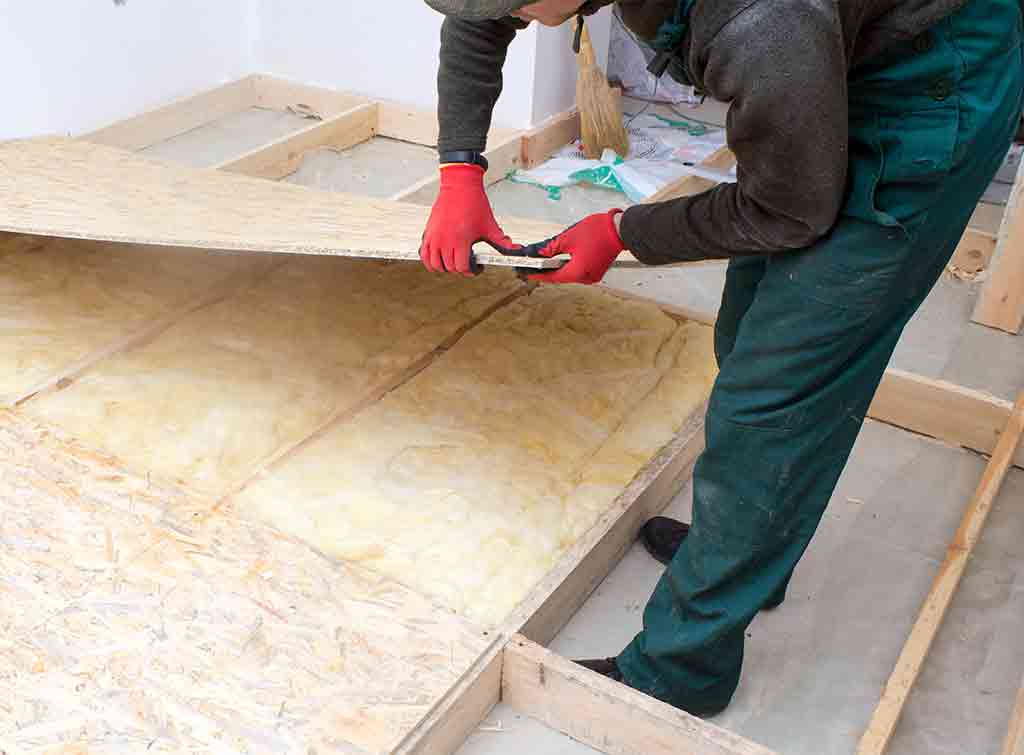
2. Getting business insurance
It doesn’t matter what trade you’re in, getting business insurance is essential. This will protect you financially should the worst happen, and let your customers know that you’re a reputable business.
We recommend getting some form of personal and public liability insurance, as well as employee cover if you have staff.
You should also look to insure any tools and vehicles you own as well. Again, if you want more information, read our article on finding the right trade insurance.
3. Accounting and bookkeeping
Accounting is not the most interesting aspect of running a business, but it’s one that’s very important. Without it, you can’t monitor your revenue and costs, making it hard to know if your business is profitable.
Whether you do your accounting yourself or with an accountant is up to you. But you can find all the details you need and more in our business accounting blog.

4. Buying your insulation tools
Finally, before you get started finding customers, you’ll need to purchase and collect some insulation tools. Buying quality tools will enable you to carry out any job required. Letting you meet all your customers’ needs.
Therefore, we recommend all insulators purchase the following tools:
- A Foam machine
- PPE
- Power tools
- Step ladders
- Sealant
- Cleaning equipment
On top of this, you will likely also need a van to transport your equipment and insulation materials.
Check out this post for help finding the best van lease deals. And don’t forget that Checkatrade members get a discount on any tools and equipment they buy.
More than just a directory listing
Get start up advice and a range of money-saving discounts to help get your business off the ground
How to grow your insulation business
With all those initial points covered, you now have everything necessary to start bringing in new customers. Which means it’s time to think about future growth.
Take a look at our marketing and scaling tips below to get started in this area:

1. Scaling your insulation business
In order to effectively grow your company, you need to have the room to handle the increased workload. This means you need to scale your business to match these new requirements.
However, if you want to do this effectively, then you need to be sure that your business can handle such changes. We recommend looking at all the following areas of business scaling before looking at growth:
- Streamlining – for effective scaling, your business has to operate properly. Make sure all areas of your business are working in tandem with each other before looking to expand
- Finances – good finances are vital if you want to scale your business, which means you need to have a reasonable of money set aside for growth. If you don’t consider alternative forms of funding or hold off until you have more savings
- Quality – as a tradesperson, your number one goal should be delivering good quality work. So, if your business growth threatens to change this, slow your growth until you can meet your new demands
- Team – getting more work means you’ll likely need to hire more staff. Make sure you do this as and when you need to so that you have the right-sized team for the job
2. Digitally marketing your insulation business
Digital marketing is an essential element for any modern business. Therefore, you should look to invest a large portion of your marketing budget into this area. Below are three key areas you should focus on:
- A company website – your key point of contact for customers, having a high-quality website is an absolute must for any business. Learn more about building one in our small business website article
- Social media – most types of trades are very visual with their work, making social media a potent tool for your new business. See our blog to find out more about marketing your business through social media
- Online directories – plenty of customers still use online directories to find reputable tradespeople in their area. Why not get in touch with the Checkatrade team today to see how we can help your new business

3. Advertising your insulation business
While less important than digital marketing, there is still a lot you can do for your business with traditional advertising. You should certainly consider doing some or all of the advertising methods listed below:
- Print marketing – it might seem old-fashioned, but print marketing is as potent as ever. Find out how to use it correctly in our print marketing blog
- PPC – perfect for anyone looking to appear more prominently online, pay-per-click advertising can generate plenty of leads. We suggest reaching out to a local PPC expert if you want to learn more about doing this
- Company branding – there are few better ways to stand out when you’re on a job than with company branding. Essentially free advertising, you can alert potential customers to your business with something as simple as a branded van and uniform
- Sponsorship – sponsoring local events is another excellent way to put your new business in front of customers. Not only that, but by going to the event, you can network with potential clients in person
4. Other marketing ideas
For our last section on growing and marketing an insulation business, we’ve collected four passive marketing options you can try out:
- Customer reviews – a good review is a sign of a job well done. Don’t be afraid to ask customers to leave reviews behind once you’ve finished a job
- Networking – if you plan on being a commercial insulator, then networking is going to be essential to finding new jobs
- GMB listings – Google’s business listing is completely free and is a great way to help your business appear in local searches online
As you may have guessed, there’s a lot that goes into marketing. But if you want more help in this area, then feel free to download our free marketing guide.
How to get more insulation work
Once you’ve implemented the steps we’ve laid out above it’s only fair to try and find even more work. When you think your business is ready to expand, consider looking into these three areas for new work opportunities:
- Other qualifications – more qualifications mean more knowledge, which in turn will let you prove to new customers that you know what you’re doing
- Specialisation – by specialising in more niche installation work, you can corner the market in your local area
- Repeat business – doing a good job means you’re more likely to get repeat business. This is especially important in commercial insulation
Save money and time marketing your business with Checkatrade
With all that covered, you should now have a good idea of how to start an insulation business. But did you know that working with Checkatrade can make this process even easier?
With our digital marketing strategy and strong online presence, becoming a Checkatrade member brings customers directly to you.
As a member, you can display customer reviews, testimonials, and examples of your work on your profile page. Not to mention you’ll get discounts on other business essentials.
We’ll also help you with free marketing materials to increase your business’s visibility on Google. And the benefits of being a Checkatrade member don’t end there.
Sign up today to truly unlock your business’ potential and start growing your insulation business.
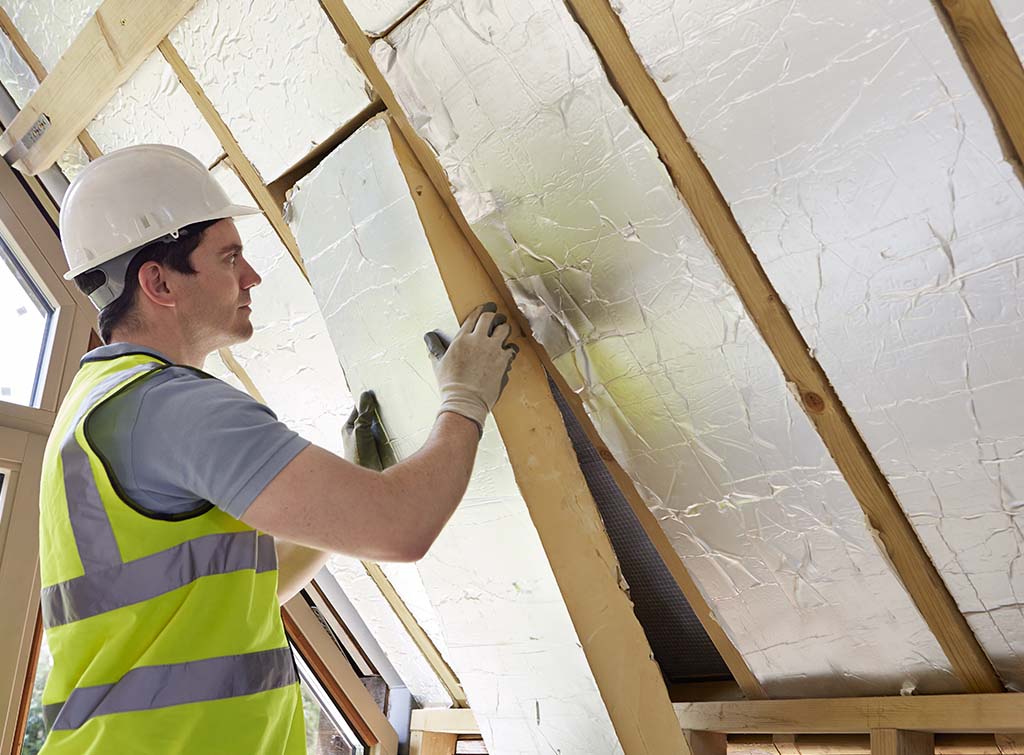
Insulation business FAQs
Is insulation a good business to start?
Insulation in homes is in high demand. The right insulation can help customers to make their property more energy efficient, in turn saving money on their energy bills. This in turn means there are more insulation jobs than ever before.
This bodes well for those wanting to set up an insulation business. Subsidised schemes are also rolled out by the government, giving you easy access to another revenue stream.
How much can an insulation company make?
How much you can earn as an insulator will depend on numerous factors. However, if you want a general overview, you can read our article looking at potential insulator earnings.
Want to make sure your new business gets off to the right start?
With a listing on the #1 trade directory, you'll get all the leads you need
Join Checkatrade now
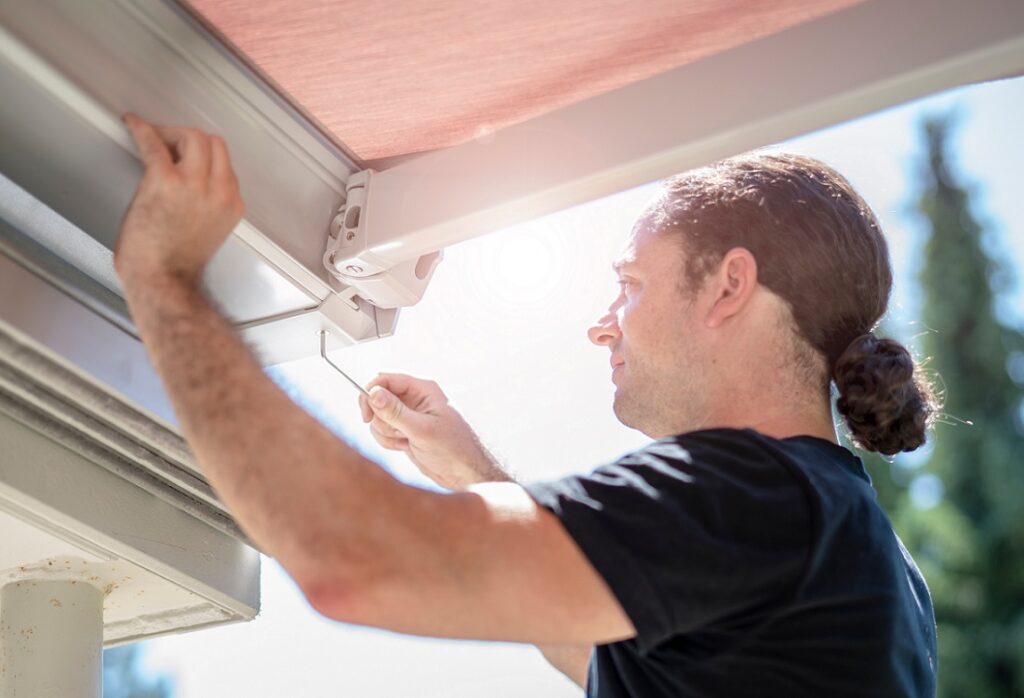

No comments yet!